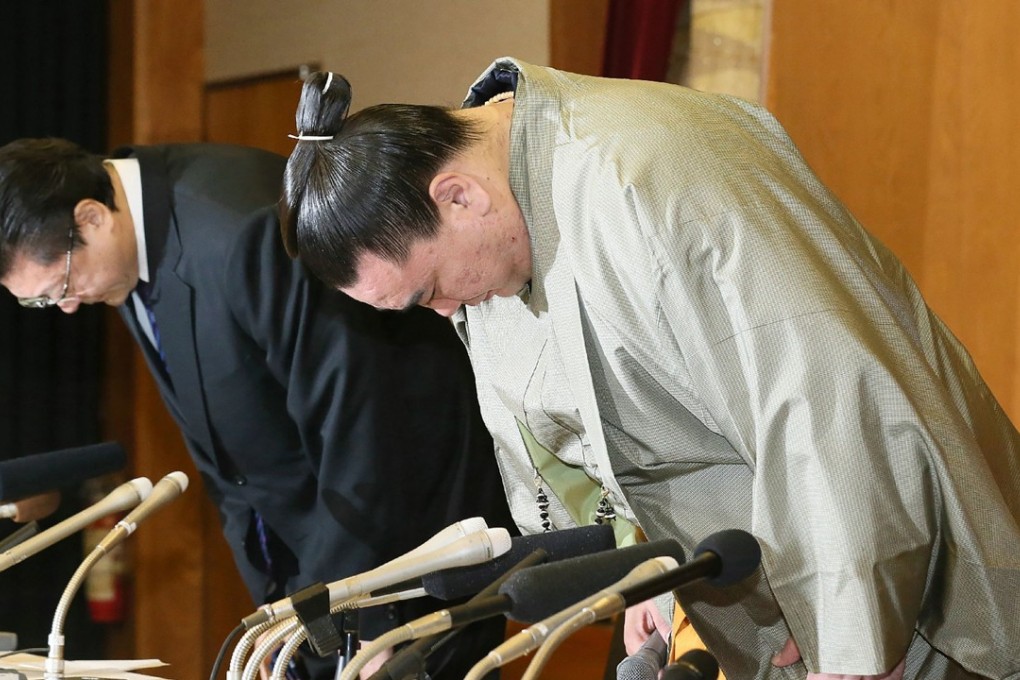Sumo grand champion steps down after brutal attack on rival
Mongolia’s Harumafuji retires after fracturing wrestler’s skull while out drinking in an incident that even Japanese Prime Minister Abe weighed in

Japan’s ancient sport of sumo suffered another humiliating blow Wednesday when grand champion Harumafuji retired after a brutal assault on a rival wrestler while out drinking, his gym boss said.
Harumafuji’s stable master Isegahama told local media the Mongolian “yokozuna” had caused embarrassment to the Japan Sumo Association (JSA) over an incident last month that left countryman Takanoiwa with a fractured skull.
His exit mirrors that of another top-ranked Mongolian, Asashoryu, who promptly stepped down in 2010 after being accused of breaking a man’s nose in a drunken brawl outside a Tokyo nightclub.
Japanese Prime Minister Shinzo Abe weighed in on the debate, while news of Harumafuji’s demise even nudged North Korea’s latest missile launch off top spot on many news programmes on Wednesday morning.
Yokozuna are expected to be beyond moral reproach but the writing was on the wall for Harumafuji after he confessed to hitting Takanoiwa for texting his girlfriend while he was scolding him over his poor attitude.
The 33-year-old Harumafuji, who reached sumo’s hallowed rank five years ago and whose real name is Davaanyam Byambadorj, denied reports he had used a beer bottle in the attack but admitted punching Takanoiwa and bashing him with a karaoke remote control.